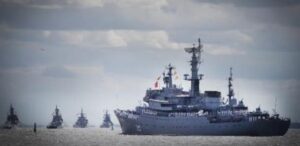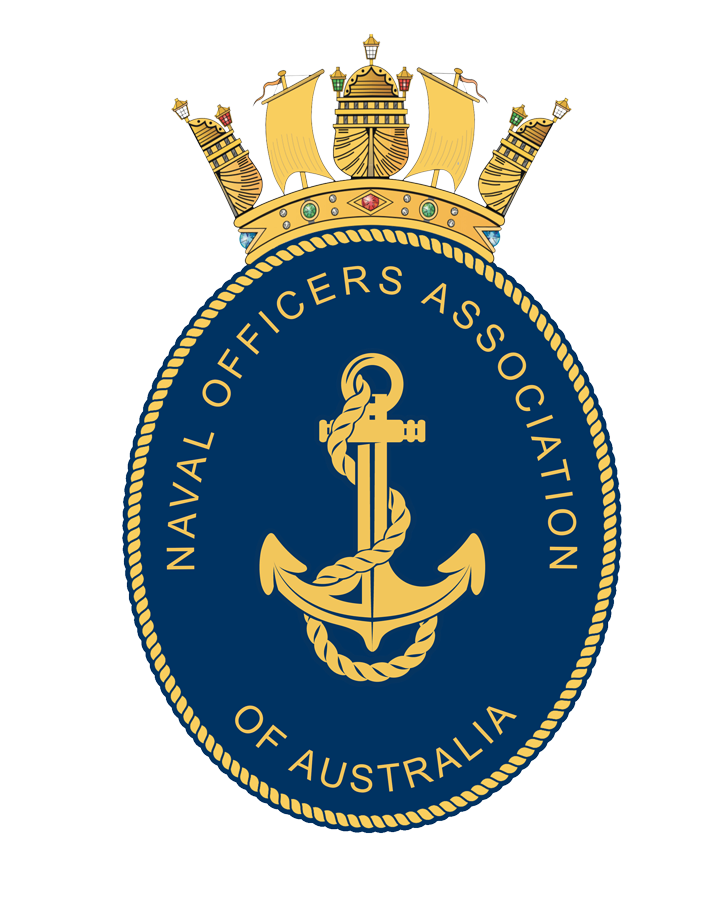The Smoke that Blunders — Russia, China and SA navy exercise is Immoral, Stupid and Impractical
The confirmation that South Africa’s navy is going to exercise with its Russian and Chinese counterparts next month is as immoral as it is plain stupid and impractical. It highlights just how far SA has strayed from its relationships with Western allies, though this relationship, it seems, was based on wishful thinking rather than the reality of the ANC’s recent history.

Two Russian warships and vessels from China are expected in Durban for a 10-day drill in mid-February in naval gunnery, force protection and air defence exercises. Apparently, the exercise will carry the same name — “Mosi” or “Smoke” — as the previous exercise between the three countries. Perhaps it should be called “The Smoke that Blunders”.
Which is not to make light of it. It’s immoral, given that Ukraine is fighting for its survival against Russian aggression. Most South Africans recognise this, with three-quarters recently polled condemning the Russian invasion, and more than 80% saying that South Africa should offer support to a country invaded by its neighbour.
What exactly can be learnt from Russia’s logistically incompetent, demoralising military leadership other than how to mistreat your troops and fire missiles at blocks of civilian flats, is unclear. At least China could teach us how to intimidate small neighbours by ignoring international conventions on territorial waters. It seems to do that quite competently in the South China Sea.
It’s impractical because South Africa’s international exercises test competent operational navies. Warships must be able to float, move and fight.
South Africa’s surface assets can float. But there is no evidence that the vessels acquired under the infamous Arms Deal — four frigates and three submarines — are operational. There has not been, reportedly, a submarine at sail sea for many months, and naval experts suggest that South Africa can only put one frigate to sea, but in a marginal, constabulary role only.
And it’s plain stupid because this will cost South Africa by adding a premium of uncertainty to its reliability as a Western partner, a reputation already pummelled by rolling blackouts, State Capture and general disorder. As such it’s an act of political and economic denial.
Humouring dodgy autocracies
Russia is a negligible destination for South African exports. The West (US, UK, Europe and others) is by far the dominant destination, followed by Africa, China and India. Trying to retain these favourable relationships by humouring dodgy autocracies does not seem like a smart strategy.
Why Pretoria would choose to do this at this time in the middle of a war with Ukraine is puzzling, unless it was completely sold ideologically, or deliberately wanted to test or spike the relationship with the West, though there may be other, more commercial, ulterior motives.
Western observers have responded with concern, particularly since the exercise is coming soon after the Russian ammunition supply vessel Lady R’s shady call to Simon’s Town naval base.
But Western agencies effectively took their eye off the ball a long time ago, where wishful thinking about South Africa’s trajectory trumped rational analysis, perhaps in the hope that it was better to try to kick the relationship can down the road in the hope that things might change rather than confront the reality that the ANC was no foul-weather friend.
They cannot say that they were not warned. This decision is entirely true to form, following South Africa’s constant abstentions on UN votes against Russia, and the visit by Lady R. It was true to Pretoria’s BRICS membership and its routine praise of Cuba while pounding Washington.
Similarly, when President Cyril Ramaphosa recently visited London, he banged on, tone-deaf, about reparations for historical industrial emissions rather than seeking to build a narrative of South Africa as a reliable partner and trusted home for Western savings.
There is an even greater cost to this stupidity than South Africa’s relations with these critical trade and investment partners. This makes hollow the claims that Ramaphosa’s fresh ANC mandate will see the suppressed reformer in him break free. On the contrary, it makes him look confused, compromised or weak, and either controlled or, worse still, a believer in the Russia/China option.
Most of all, choosing to carry out the exercise at this time should remind South Africans of the serious risks posed by the war in Ukraine — less by Russia, or the West, but by the ANC itself.
It highlights exactly why South Africans should be scared of a Putin victory, since this is the model that seems to attract many in today’s ANC: like Putin’s Russia, where there is a façade of democracy without accountability, the media is compromised, party and personal interests trump institutions and freedoms, and where the law of the jungle outdoes the rule of law. It is not a land of justice, freedom and a better life for all, but rather one defined by greed, violence, fear and the whiff of polonium.
This is precisely why Russia must, for the sake of Africans, lose in Ukraine.
As for these naval “exercises”, they obviously have nothing to do with actual military learning. They are all about signalling the virtue of undemocratic autocracies and backing the agent of a globally condemned invasion.
Given the lack of any genuine military purpose, the victory will be Russia’s, a demonstration that it openly enjoys the support of South Africa, once a bright beacon of democracy and now a flickering light of failure. Source: Daily Maverick
Dr Greg Mills and Ray Hartley are Director and Research Director respectively of The Brenthurst Foundation.
